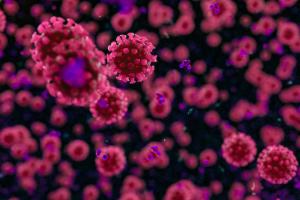By Robert Pedowitz, DO, FACOFP
Medical Director
On behalf of Family Practice of CentraState, we hope you are staying healthy and well, and enjoying the holiday season.
It has certainly been a very long and difficult year for all of us, and the next few months may continue to be challenging, but the good news is that with the approval and release of two vaccines and many effective treatments, we are starting to see the light at the end of the tunnel in our battle against COVID-19. Many people have asked, “Should I get this vaccine?” The answer is yes! Our physicians and staff are getting the vaccine and we strongly encourage you to do so as well.
With that said, you may have additional questions about the vaccines and I would like to provide you some answers. If you still have any concerns, please reach out to your physician or provider for further discussion.
As you may know, coronavirus (SARS-CoV-2) is a highly contagious disease that spreads easily from person to person whether symptomatic or not. Although most people who become infected only develop mild to moderate symptoms, the percentage of people who develop severe or life-threatening symptoms has overwhelmed healthcare systems throughout the U.S. and the rest of the world. Mathematically, there are simply not enough ICU beds, ventilators or healthcare personnel to treat all those who need advanced care. So, we can all do our part to reduce the number of infections by getting a vaccine that is safe and effective.
We encourage you to continue to follow guidance from the CDC, NJ Department of Health, and from us, as we all work together to combat COVID-19. Please hang in there a few more months, as we are getting closer to the end, and the ability to experience a more “normal” routine. Thank you for your continued trust in Family Practice of CentraState.
Wishing you a safe and happy holiday season!





